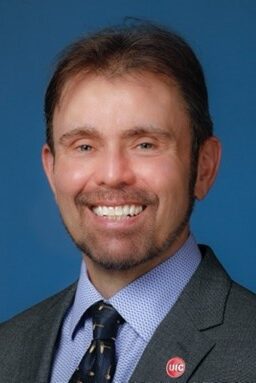Department Seminar Series - Dr. Karl Rockne
Karl Rockne, PhD, PE, BCEE
Evolving Engineering Education (E3) for the 21st Century
ABSTRACT:
While at the National Science Foundation, the speaker provided support for two National Academy consensus studies on engineering (New Directions for Chemical Engineering, 2022 and Environmental Engineering for the 21st Century: Addressing Grand Challenges, 2019). Both reports indicate that societal grand challenges necessitate an increasing recognition of the need for sustainable solutions across the ‘three p’s’ (people, profits, planet). Additional findings include the need to evolve the engineering curriculum to respond to new challenges, new modes of learning, and to broaden participation to create an engineering profession.
It is with this background that the speaker will look at ways to evolve engineering education for the 21st Century. An analysis of important academic (and specifically engineering education) stakeholders will be presented, followed by an analysis of three major forces influencing both the business world and academia: digitization, globalization, and innovation.
Next, the impact of globalization on higher education will be assessed, drawing on examples of business model evolution from linear closed product-business-customer and service strategy-based models to highly networked open business platform models. Higher education traditionally has been among the most closed operations, but the advantages of resilient open business platforms that leverage network effects represent a significant opportunity to evolve academia and expand markets to global scale.
Finally, an assessment of innovation in higher education will be addressed. While innovation in engineering and technology research in US higher education continues to lead the world, it is not clear that this innovative capacity translates efficiently to the education activities of academia. Drawing on the social, behavioral, and economic sciences, organizational aspects known to lead to disruptive innovation versus more incremental advances will be discussed. A key finding of this research is that a “portfolio” approach to innovation has the best opportunity to maximize the potential for continued innovation.
This talk will raise many more questions than answers, but it is hoped that it will lead to new conversations on how best to address societal challenges through engineering.
BIOGRAPHY
As Associate Dean of Research, Professor Rockne coordinates the research activities of over 200 faculty in the College of Engineering at the University of Illinois at Chicago. Professor Rockne has received many teaching, research, and service awards, including two major awards from the NSF: the Director's Award while serving four years as a Program Director in the Engineering Directorate, and the CAREER award for research on “active capping” technology for environmental cleanup. Professor Rockne has published over 120 scientific articles funded by grants totaling $17M, and he is in the top 3-6% worldwide in citations in the fields of bioremediation, environmental biotechnology, and environmental engineering according to GOOGLE Scholar.
Outside of academia, Professor Rockne is an avid endurance athlete, having raced in over 50 marathons (ultra- and standard), triathlons (sprint, international, and half Ironman), and bike races.





